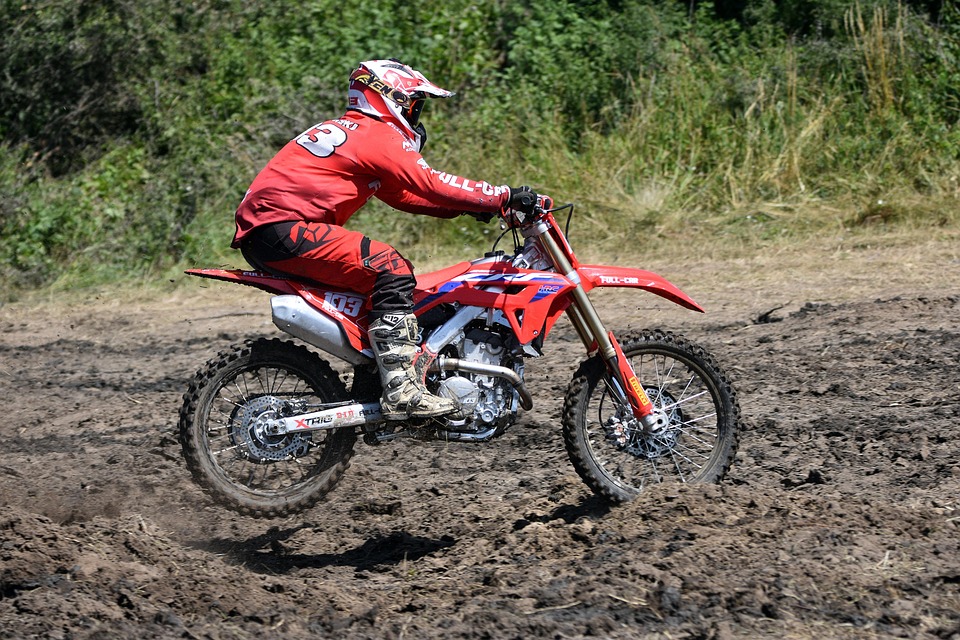Confidence Under Pressure: Techniques to Build Mental Resilience in Competition
In the world of competitive sports and high-stakes performance, confidence acts as a pivotal cornerstone of success. It can elevate an athlete’s performance, allowing them to reach their peak capabilities even in the face of adversity. However, the ability to maintain confidence under pressure distinguishes average performers from elite athletes. Building mental resilience is not merely about toughening up; rather, it involves a comprehensive understanding of psychological techniques, emotional intelligence, and self-awareness. In this article, we will explore various techniques that can help athletes and competitors bolster their confidence and develop the mental resilience necessary to thrive under pressure.
Understanding Pressure in Competition
Pressure in competitive environments can stem from various sources, including expectations from coaches, team dynamics, personal aspirations, and the inherent nature of high-stakes situations. Under these conditions, an athlete may experience anxiety, self-doubt, or even a sense of impending failure. Understanding these pressures is the first step in learning how to navigate them.
Types of Pressure
-
Internal Pressure: This encompasses personal ambitions, perfectionism, and self-expectations. Athletes often find themselves caught in a cycle of self-criticism, which can lead to a decrease in performance.
-
External Pressure: This includes expectations from coaches, teammates, fans, and sponsors. External validation can sometimes become overwhelming and cause athletes to lose focus on their performance.
- Situational Pressure: This arises from specific competitive circumstances, such as being in a championship game or attempting a personal best. Here, the stakes are high, and the spotlight can be intimidating.
Developing techniques to manage these pressures not only enhances performance but also serves to improve overall mental health and athletic longevity.
Techniques to Build Mental Resilience
1. Visualization and Mental Imagery
Visualization is a powerful tool employed by athletes to enhance performance and build confidence. By mentally rehearsing scenarios, athletes can prepare themselves for various outcomes and reduce anxiety.
Implementation:
- Daily Practice: Allocate time each day to visualize yourself succeeding in your sport. Picture the details: the sounds, sensations, and emotions associated with peak performance.
- Positive Imagery: Focus on successful experiences rather than potential failures. This fosters a positive mindset and reinforces confidence.
2. Mindfulness and Meditation
Incorporating mindfulness practices can help athletes stay present and manage stress effectively. Mindfulness teaches individuals to observe their thoughts without judgment, facilitating better emotional regulation.
Implementation:
- Breathing Exercises: Practice deep breathing techniques to calm the nervous system. Focus on inhaling and exhaling slowly, allowing your thoughts to come and go without attachment.
- Mindful Training: During practice sessions, concentrate fully on the task at hand rather than getting distracted by external pressures.
3. Goal Setting
Setting clear, achievable goals is fundamental for building confidence and mental resilience. Goals provide direction and create a structured approach to improvement.
Implementation:
- SMART Goals: Ensure your goals are Specific, Measurable, Achievable, Relevant, and Time-bound. This provides a clear framework for tracking progress.
- Short-term and Long-term Goals: While long-term goals provide a vision, short-term goals create immediate milestones that help sustain motivation.
4. Positive Self-Talk
The dialogue we engage in within our minds can significantly influence our confidence levels. Positive self-talk reinforces belief in one’s abilities and fosters an affirmative mental environment.
Implementation:
- Affirmations: Develop a series of positive affirmations that resonate with you. Repeat them daily to embed these beliefs into your subconscious mind.
- Reframing Negative Thoughts: Actively challenge negative thoughts as they arise, replacing them with constructive alternatives.
5. Embracing Failure
Failure is an inevitable part of any competitive journey. Embracing failure as a learning opportunity shifts the perspective from fear to resilience.
Implementation:
- Reflective Journaling: Keep a journal where you analyze past performances, identifying both strengths and areas for improvement.
- Cultivate a Growth Mindset: View challenges as opportunities for growth rather than obstacles. This shift in perspective can help to reduce the fear of failure.
6. Routine and Ritual
Establishing a pre-competition routine can help stabilize emotions and create a sense of normalcy amid pressure. Routines provide predictability, which can be comforting in high-stress situations.
Implementation:
- Customize a Routine: Develop a routine that incorporates both physical and mental preparation, such as warm-ups, stretching, and visualization.
- Stick to the Routine: Consistency can help reinforce confidence, allowing athletes to enter competitions with familiarity and focus.
7. Building a Support System
The importance of having a reliable support system cannot be overstated. Support from coaches, teammates, family, and friends can provide reassurance and constructive feedback.
Implementation:
- Regular Communication: Foster open lines of communication with your support network. Sharing concerns and victories can reinforce confidence and motivation.
- Seek Feedback: Constructive criticism from trusted peers can help identify areas of improvement and boost confidence through encouragement.
8. Develop Coping Strategies
Coping strategies equip athletes to handle pressure more effectively. Each individual may respond differently to stress, and it’s crucial to identify what works best for you.
Implementation:
- Identify Triggers: Recognize what specifically triggers your stress or anxiety during competition.
- Develop a Toolkit: Create a set of strategies tailored to your needs, whether that involves breathing exercises, visualization, or self-talk.
9. Physical Fitness and Conditioning
A well-conditioned body can significantly enhance mental resilience. Physical fitness not only boosts performance but also aids in emotional stability.
Implementation:
- Tailored Training Programs: Work with a coach to develop a strength and conditioning program that meets your specific sport demands.
- Hydration and Nutrition: Maintain proper nutrition and hydration levels to ensure optimal performance and cognitive function.
The Role of Emotional Intelligence
Emotional intelligence plays a critical role in managing the pressures of competition. Understanding one’s own emotions and those of others can enhance interpersonal relationships and improve performance.
Key Components of Emotional Intelligence
- Self-Awareness: Recognizing your emotions and how they affect your performance is paramount.
- Self-Regulation: The ability to manage your emotions and responses is key to maintaining confidence under pressure.
- Empathy: Understanding and relating to the emotions of teammates and competitors fosters better communication and teamwork.
Building a Strong Mental Framework
In order to sustain the techniques mentioned above, building a strong mental framework is essential. Mental frameworks involve the underlying beliefs and values that guide decision-making and performance.
Steps to Build a Strong Mental Framework
- Identify Core Values: Understanding what drives you and your commitment to your sport can serve as a foundation for sustaining resilience.
- Cultivate a Vision: Having a long-term vision can provide motivation and direction, offering a larger purpose to your daily efforts.
- Maintain Flexibility: Being adaptable to change and open to new methods of improvement allows for continuous growth.
Conclusion
In the realm of competition, confidence under pressure is not simply a matter of innate talent; it is a skill that can be cultivated through various techniques. By implementing strategies such as visualization, mindfulness, and establishing a strong support network, athletes can enhance their mental resilience and thrive in high-pressure environments.
Mental resilience is an evolving process that requires dedication and commitment. With practice, athletes can learn to embrace challenges and transform pressure into a performance-enhancing fuel, proving that confidence is ultimately forged in the crucible of competition.
References
- [1] Wood, J. V., & Perunovic, W. Q. (2006). "The importance of self-esteem in sport performance."
- [2] Neff, K. D. (2011). "Self-Compassion: The Proven Power of Being Kind to Yourself."
- [3] Goleman, D. (1995). "Emotional Intelligence: Why It Can Matter More Than IQ."
- [4] Csikszentmihalyi, M. (1990). "Flow: The Psychology of Optimal Experience."
- [5] Bandura, A. (1997). "Self-Efficacy: The Exercise of Control."
This comprehensive guide can serve athletes, coaches, and sports psychologists in creating effective training programs that emphasize the significance of mental resilience and confidence in competitive sports. By fostering these skills, individuals can not only enhance their performance but also enjoy the journey of athletic competition.

























Add Comment